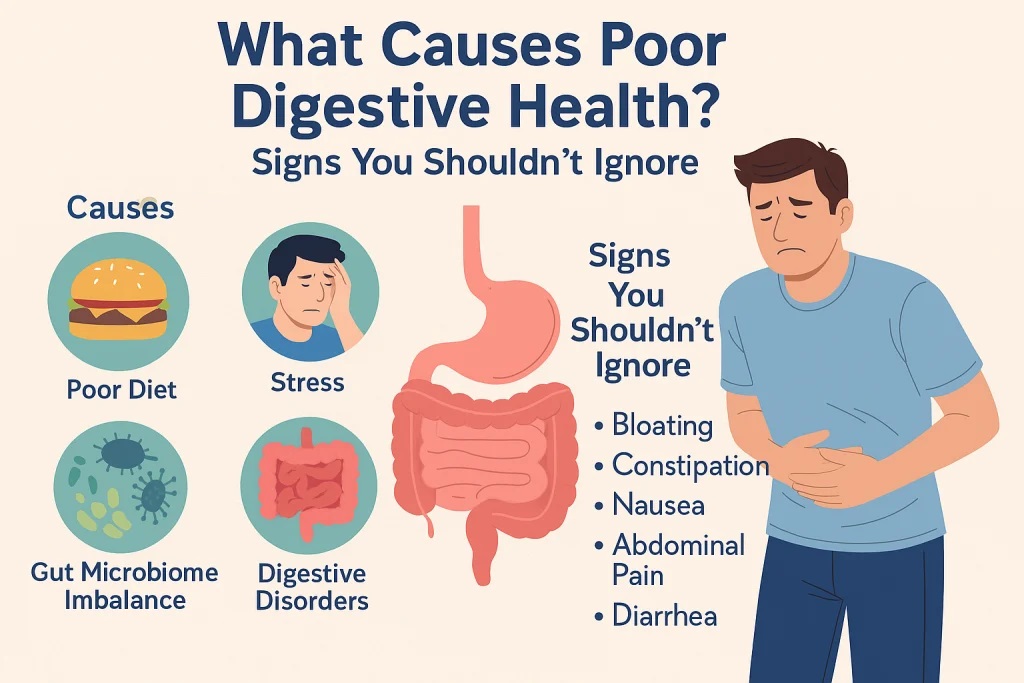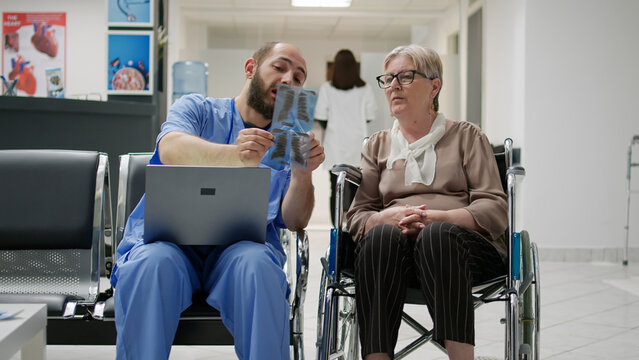Understanding the most common pregnancy complications — and learning how to prevent them — can make all the difference in achieving a safe and positive childbirth experience. Pregnancy is one of the most remarkable experiences in a woman’s life, bringing immense joy and anticipation. However, it also comes with certain health risks that require attention and proper care. At Local MD, we believe that awareness, medical monitoring, and timely intervention are key to ensuring a healthy pregnancy for both mother and baby.
Understanding Pregnancy Complications
Pregnancy complications refer to health problems that arise during pregnancy, affecting the mother, baby, or both. Some are mild and easily managed with medical support, while others may pose serious risks if not addressed promptly.
These complications can occur at any stage — early, mid, or late pregnancy — and may involve hormonal changes, nutritional deficiencies, pre-existing conditions, or unforeseen physiological responses. Fortunately, most complications can be prevented or managed effectively through regular prenatal care and adherence to medical advice.
Gestational Diabetes Mellitus (GDM)
What It Is
Gestational diabetes occurs when the body cannot produce enough insulin during pregnancy, leading to elevated blood sugar levels. This condition affects around 2–10% of pregnancies and typically develops in the second or third trimester.
Possible Risks
-
High birth weight (macrosomia) in the baby
-
Premature delivery
-
Increased risk of cesarean delivery
-
Long-term risk of Type 2 diabetes for both mother and child
How to Prevent It Medically
-
Regular Screening: Women are usually tested between 24–28 weeks through a glucose tolerance test.
-
Dietary Management: Follow a balanced diet rich in fiber, whole grains, and lean proteins while limiting refined sugars.
-
Exercise: Moderate physical activity such as walking, swimming, or prenatal yoga helps regulate blood sugar levels.
-
Medical Monitoring: If diagnosed, insulin therapy or oral medications may be prescribed to manage glucose levels effectively.
Preeclampsia
What It Is
Preeclampsia is a serious condition characterized by high blood pressure and protein in the urine after the 20th week of pregnancy. It can lead to organ damage and endanger both the mother and baby if not managed properly.
Possible Risks
-
Restricted fetal growth due to reduced placental blood flow
-
Premature birth
-
Seizures (eclampsia)
-
Liver and kidney complications in the mother
How to Prevent It Medically
-
Regular Blood Pressure Checks: Consistent prenatal monitoring can help detect preeclampsia early.
-
Low-Dose Aspirin: For high-risk pregnancies, doctors may recommend low-dose aspirin starting from the 12th week to lower risk.
-
Healthy Diet: A diet rich in calcium, magnesium, and antioxidants supports cardiovascular health.
-
Rest and Hydration: Reducing stress and maintaining proper hydration also help regulate blood pressure.
Anemia During Pregnancy
What It Is
Anemia is a condition where the body lacks enough healthy red blood cells to carry oxygen. During pregnancy, iron demands increase significantly, and iron-deficiency anemia becomes common if the diet is not sufficient.
Possible Risks
-
Fatigue and dizziness
-
Low birth weight
-
Preterm delivery
-
Developmental delays in the baby
How to Prevent It Medically
-
Iron Supplements: Your healthcare provider may prescribe iron and folic acid supplements throughout pregnancy.
-
Iron-Rich Foods: Include lean red meat, beans, lentils, spinach, and fortified cereals in your diet.
-
Vitamin C Intake: Vitamin C enhances iron absorption, so pairing citrus fruits with iron-rich foods is beneficial.
-
Routine Blood Tests: Regular monitoring helps identify anemia early and ensures timely correction.
Preterm Labor
What It Is
Preterm labor occurs when labor begins before 37 weeks of pregnancy. It can lead to premature birth, which increases risks for breathing difficulties, feeding problems, and developmental issues in newborns.
Possible Risks
-
Low birth weight
-
Respiratory distress syndrome
-
Long-term neurological or growth complications
How to Prevent It Medically
-
Prenatal Care: Frequent prenatal visits allow early detection of risk factors like infections or cervical changes.
-
Avoid Smoking and Alcohol: These significantly increase preterm labor risks.
-
Treat Infections Promptly: Urinary tract or vaginal infections should be addressed immediately.
-
Progesterone Therapy: For women with a history of preterm birth, progesterone supplements can help reduce recurrence risk.
Placenta Previa
What It Is
In placenta previa, the placenta partially or completely covers the cervix, potentially leading to bleeding during pregnancy or delivery.
Possible Risks
-
Severe bleeding (especially during labor)
-
Preterm birth
-
Cesarean delivery requirement
How to Prevent It Medically
-
Avoid Smoking: Tobacco increases the likelihood of abnormal placental attachment.
-
Regular Ultrasound Monitoring: Early detection through ultrasounds allows for medical planning.
-
Activity Modification: In some cases, doctors may advise bed rest or avoiding strenuous physical activity.
-
Planned Cesarean Delivery: If placenta previa persists near term, a C-section ensures safe delivery for mother and baby.
Infections During Pregnancy
What They Are
Infections such as urinary tract infections (UTIs), toxoplasmosis, cytomegalovirus, and group B streptococcus can complicate pregnancy and affect fetal health.
Possible Risks
-
Miscarriage or preterm labor
-
Birth defects or low birth weight
-
Neonatal infections
How to Prevent It Medically
-
Routine Screening: Regular urine and blood tests help detect infections early.
-
Safe Food Practices: Avoid undercooked meat, unpasteurized dairy, and raw seafood.
-
Hygiene: Proper handwashing and personal hygiene reduce infection risks.
-
Vaccinations: Stay updated on safe vaccinations recommended during pregnancy, such as flu and Tdap shots.
Hyperemesis Gravidarum (Severe Morning Sickness)
What It Is
Unlike typical morning sickness, hyperemesis gravidarum involves severe, persistent nausea and vomiting, leading to dehydration, electrolyte imbalance, and weight loss.
Possible Risks
-
Nutritional deficiencies
-
Dehydration
-
Hospitalization in severe cases
How to Prevent It Medically
-
Early Medical Evaluation: Persistent vomiting should never be ignored.
-
IV Fluids and Electrolytes: Rehydration therapy may be required.
-
Vitamin B6 and Antiemetic Medications: Doctors often prescribe safe medications to control nausea.
-
Small, Frequent Meals: Eating light, dry foods can help reduce symptoms.
Miscarriage
What It Is
A miscarriage refers to the spontaneous loss of pregnancy before 20 weeks. While many occur due to chromosomal abnormalities, some are preventable with proper care.
Possible Risks
-
Severe abdominal pain or bleeding
-
Emotional distress
-
Recurrent pregnancy loss in some cases
How to Prevent It Medically
-
Avoid Smoking, Alcohol, and Drugs: These substances significantly raise miscarriage risk.
-
Manage Chronic Conditions: Control diabetes, thyroid issues, or hypertension before and during pregnancy.
-
Prenatal Vitamins: Folic acid supports healthy fetal development.
-
Regular Ultrasounds: Early monitoring ensures fetal growth and viability.
Intrauterine Growth Restriction (IUGR)
What It Is
IUGR occurs when the baby’s growth rate slows in the womb due to issues like placental insufficiency, high blood pressure, or maternal malnutrition.
Possible Risks
-
Low birth weight
-
Stillbirth
-
Developmental delays
How to Prevent It Medically
-
Regular Ultrasounds: Growth scans track fetal progress.
-
Nutrition Optimization: Increase protein intake and ensure adequate calorie consumption.
-
Treat Hypertension: Blood pressure management supports placental function.
-
Bed Rest in Severe Cases: May be advised to improve uterine blood flow.
Postpartum Hemorrhage (PPH)
What It Is
PPH refers to excessive bleeding after delivery, often due to uterine atony or retained placenta. It’s a leading cause of maternal morbidity worldwide.
Possible Risks
-
Severe blood loss
-
Shock
-
Need for transfusions or surgery
How to Prevent It Medically
-
Active Management of Third Stage of Labor: Administering uterotonic drugs after delivery helps the uterus contract.
-
Iron Supplements: Building iron stores during pregnancy reduces anemia risk from blood loss.
-
Monitor Risk Factors: Prior PPH or multiple pregnancies increase risk — these patients require close observation.
The Role of Regular Prenatal Care
Prenatal care is the cornerstone of preventing and managing pregnancy complications. Through routine checkups, ultrasounds, and laboratory screenings, doctors can detect early signs of potential issues and address them before they escalate.
Key elements of effective prenatal care include:
-
Monthly visits during early pregnancy, becoming more frequent as delivery approaches.
-
Blood pressure and glucose monitoring.
-
Weight tracking and nutritional counseling.
-
Fetal heartbeat and movement assessment.
-
Education on warning signs like bleeding, swelling, or severe headaches.
With proactive healthcare, most pregnancy complications can be successfully managed — leading to a safe, healthy delivery.
Conclusion
Pregnancy, while a natural process, demands medical attention, awareness, and preventive measures to ensure the well-being of both mother and child. Complications such as gestational diabetes, preeclampsia, anemia, and preterm labor are preventable with timely medical care, lifestyle management, and consistent prenatal monitoring.
At Local MD, we are dedicated to supporting expectant mothers through every stage of their journey — from conception to postpartum recovery — with personalized, evidence-based care. Remember, early detection and regular consultation with your healthcare provider are your strongest defenses against pregnancy complications.






